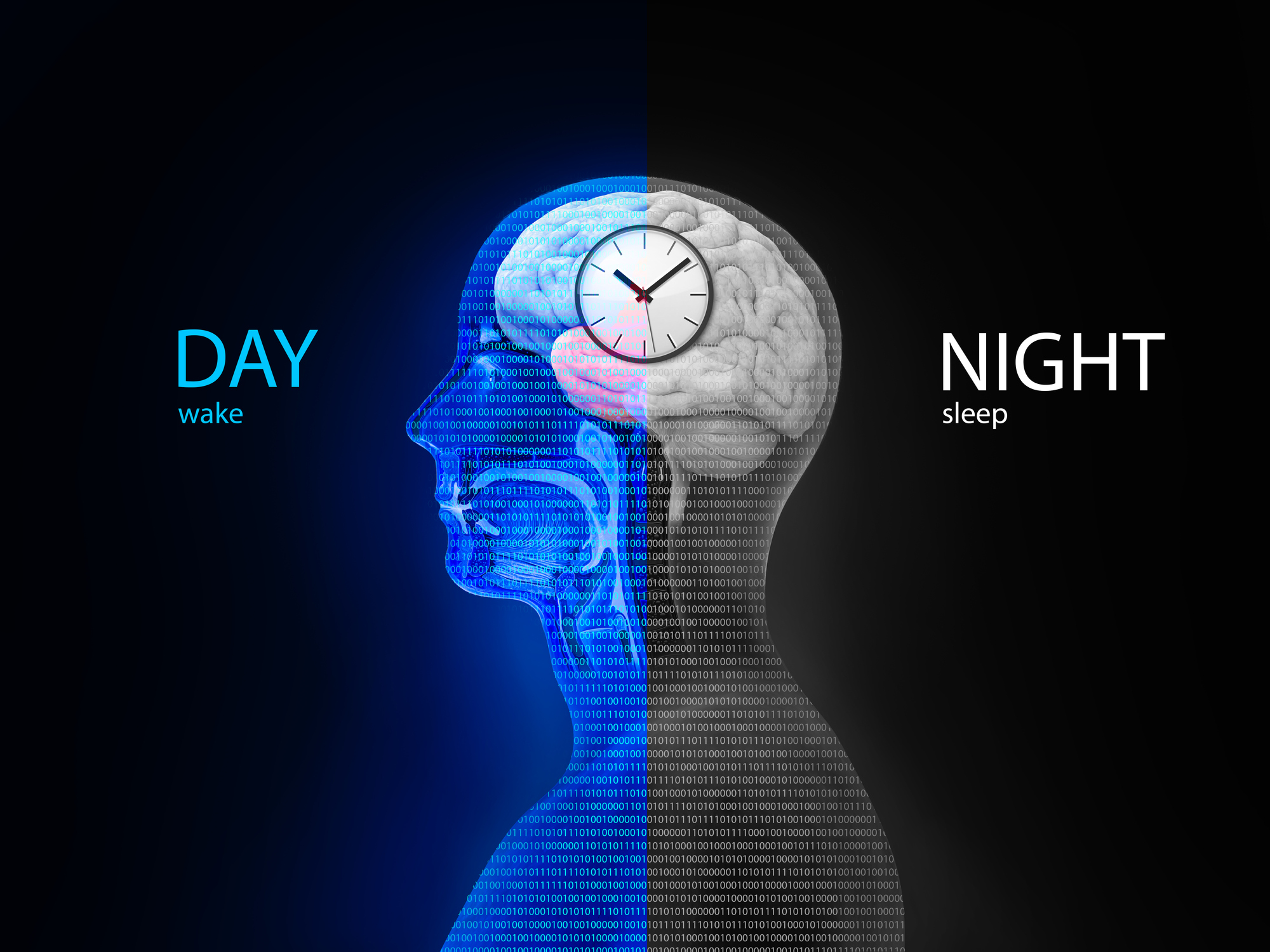What is the Circadian Rhythm?
The circadian rhythm refers to the biochemical, physiological, and behavioral changes in living organisms that follow a roughly 24-hour cycle, driven by the Earth’s rotation. It is one of the body’s fundamental biological mechanisms, regulating processes such as the sleep–wake cycle, hormone secretion, body temperature, and metabolism (Tüzer & Altıntoprak, 2018).
- Several environmental factors influence the circadian rhythm:
- Light–dark cycles
- Meal timing and eating patterns
- Physical activity levels
- Use of electronic devices before sleep
- Exposure to artificial light
Disruption of the circadian rhythm can lead to sleep disorders and various other health problems.
⸻
How It Works
The circadian rhythm is one of the body’s four main biological rhythms and is primarily controlled by the suprachiasmatic nucleus (SCN) in the brain.
- The retina in the eyes detects changes in light and darkness in the environment.
- These signals are transmitted to the SCN.
- The SCN sends messages to other parts of the brain to regulate hormone secretion (such as melatonin) and body temperature.
- This system determines when we fall asleep and when we wake up (Refinetti, 2016).
⸻
Factors That Disrupt the Circadian Rhythm
- Traveling across multiple time zones (jet lag)
- Consuming caffeine late at night
- Substance use (alcohol, nicotine, etc.)
- Working night shifts
- Exposure to phone, computer, tablet, or TV screens before bed
- Irregular meal times
- High stress levels
- Too little or excessive physical activity
- Late-night social activities
- Certain medical conditions (e.g., sleep apnea, depression)
⸻
Signs of Circadian Rhythm Disruption
- Difficulty falling asleep despite going to bed
- Trouble sleeping even when physically tired
- Frequent night awakenings
- Memory and concentration problems
- Feeling unrefreshed after adequate sleep
⸻
Regulation and Support Strategies
To maintain a healthy circadian rhythm:
- Keep consistent sleep and wake times
- Get adequate exposure to natural daylight
- Limit screen time in the evening
- Exercise regularly
- Avoid heavy meals and caffeine in the evening
Additionally, therapies aimed at balancing the energy field (aura) may help reduce stress and support better sleep quality.
References
- Refinetti, R. (2016). Circadian physiology. CRC Press.
- Tüzer, T., & Altıntoprak, E. (2018). Circadian rhythm and mental health. Current Approaches in Psychiatry, 10(1), 21–33.
- Wright, K. P., et al. (2013). Entrainment of the human circadian clock to the natural light-dark cycle. Current Biology, 23(16), 1554–1558.



